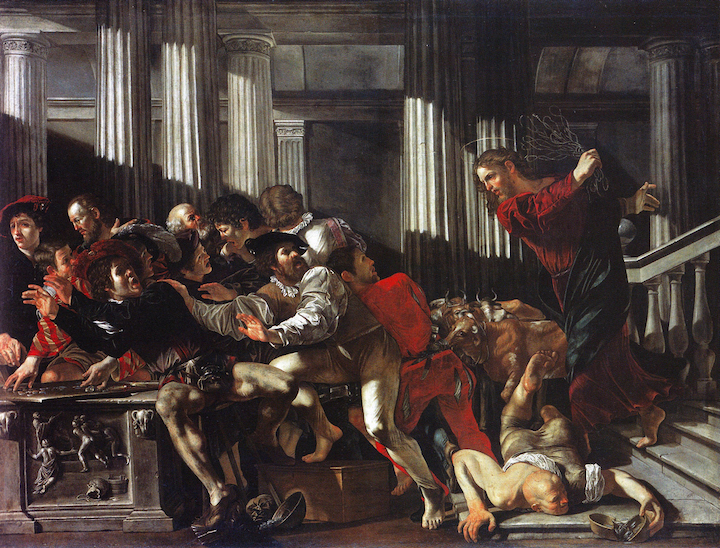It’s election season, so candidates promising policies that fulfill the American Dream in exchange for our votes are everywhere. The American Dream is the social and economic corollary of our nation’s founding creed: that all men are created equal and endowed by God with natural rights to life, liberty, and the pursuit of happiness. Because we are free and equal, we can aspire to an egalitarian society where all Americans can prosper materially.
Longing for economic security and social standing is innate in fallen man, and there is nothing wrong with these things as such – though, like any worldly good, they can be overly coveted or misused. While they are not necessary for eternal salvation, a lack of these benefits can generate tremendous stress, which, in turn, can lead anxious individuals to anger, despair, and sin.
But the American Dream cuts deeper than the desire for financial security. It is a constitutive statement of American life (Wikipedia tells us that the term arose in the 19th century), and, therefore, it reflects who we are as a people. In pursuit of the dream, though, we ought to ask ourselves if this is who we want to be.
Two features of the American Dream reflect deeply held American ideals. First, material gain and class concerns are part of the fabric of our nation. Second, the dream is understood as an end in itself: that with hard work we can reach “a better life,” which includes a home and property along with enough money to finance whatever we desire. Since her founding, America, the promised land of opportunity, has lured people from across every ocean to transform their rags into riches.
These features prompted the Catholic historian Christopher Dawson to warn Europe against embracing America’s “practical materialization of culture,” which, in his view, has “led, on the one hand, to the individualistic cult of material success and, on the other, to a humanitarian idealism that is in reality nothing else but the same ideal in socialized form.”
Dawson’s diagnosis is reflected in the campaign promises of both major political parties since the Civil War. Without question, Americans have been, and, on the whole, still are religious people. But from the beginning, religion has been compartmentalized as a part of who we are rather than the animating source of who we are. Compartmentalizing religion, argues philosopher Charles Taylor, was a major step toward the secularization we experience today.
When we set priorities, it is all too easy for worldly concerns to marginalize, and then absorb, spiritual ones. The American Dream expresses the triumph of the material over the spiritual in our social outlook.

Ancient Israel provides an effective contrast to the American perspective. God commanded Pharaoh through Moses, “Let my people go, that they may serve me in the wilderness.” (Ex 7:16) Freedom, God tells us, is not an end in itself, as Americans typically view it. Rather, freedom is the condition for worship, the means whereby we fulfill our vocations as pilgrims on the way home to God. We know, of course, that Israel repeatedly fell from this call over the centuries. Yet the call has remained constitutive for the people: Israel’s purpose was not to build up treasures on earth, but in heaven.
In this view, human beings do not live to work, as we Americans tend to think – from competing for admission into prestigious schools, to the rat race, to climbing the corporate ladder. No. In the Catholic view, human beings work to live. And Christians are to live, St. Paul explains, not “for themselves, but for him who died and was raised for them.” (2 Cor. 5:15)
For Catholics, work, wealth, and social standing can never be the principal goal of our lives. Properly understood, they are byproducts of, and not rewards for, fulfilling God’s will. We are not to keep them for ourselves, but offer them back to God by serving others with them. “From everyone to whom much has been given, much will be required.” (Luke 12:48)
Catholics will not be able to reshape the American Dream wholesale for the nation, nor will they alone change the tenor of political discourse. Yet there are two benefits of recasting the American Dream within a God-centered context.
First, we can resist being swallowed by the materialist vortex that surrounds us, one that pulls harder during election time. Second, in an age when politics has become an all-consuming religion, we can remember that religion ought to direct politics – not in the sense of clergy dictating policy, as critics baselessly assert, but of religious principles guiding voting and policy making for the common good.
These benefits may seem a dream unto themselves. But if we continue to see the American Dream as an end in itself, we risk losing sight of the Kingdom of God and His righteousness. Jesus warned us repeatedly of the dangers of riches, and none of us is immune to temptation. If we want to do what is best for ourselves, and, by extension, our country, we must place God at the center of all our dreams, financial and otherwise.
*Image: Christ Driving the Money Changers from the Temple by Cecco (del Caravaggio), 1610 [Gemäldegalerie, Berlin]. This painter is not the more famous one who also hailed from Caravaggio but an early follower.















